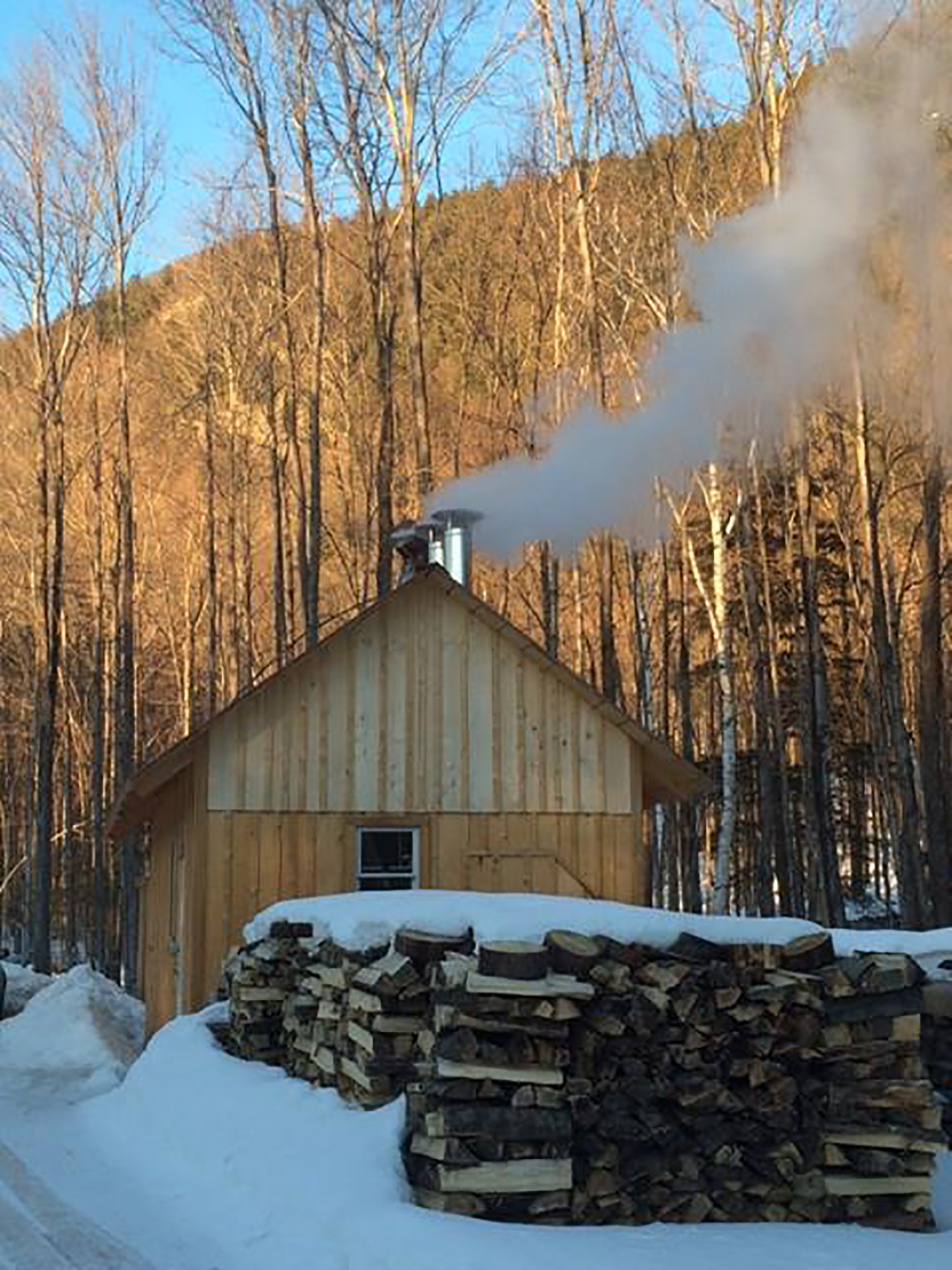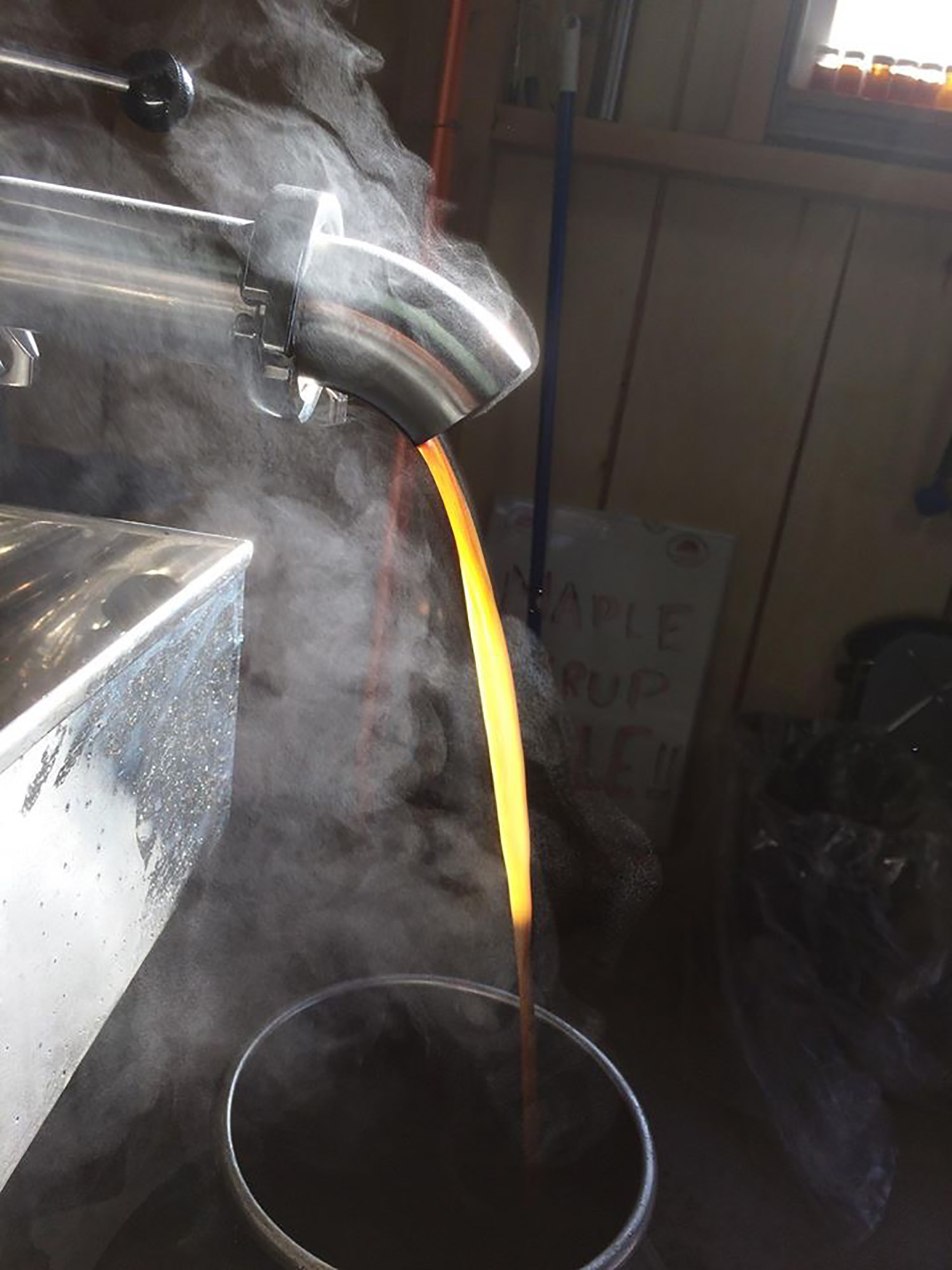by Brian Handwerk for LandVest
When the sun warms northern forests each spring, the sap starts to flow, producing the beloved maple syrup used to saturate the nation’s pancake breakfasts. But that’s not all. The sap run also generates an appetizing revenue stream for owners of timberland properties—one that can augment or even match the profits otherwise gained by harvesting.

Creating a sugarbush (a stand of maples dedicated to syrup production) is just one of the alternative investment income opportunities that are increasingly popular with timberland managers from small, private forest owners to institutional investors and conservation organizations. These income-generating alternatives may include non-timber forest products, like syrup and pine straw, or the sale of conservation easements and carbon credits. Income is also produced through uses like hunting leases, extraction of oil, gas, or minerals, and even simple rights-of-way.
These revenues may not be the primary focus of landowners with a vision on profits from timber sales, but they can be extremely important. After all, you can’t cut the same trees every year.
“A timber harvest is a significant liquidity event, but the cycle of that cash flow is much longer, anywhere from 15 to 50 years,” says LandVest’s Joe Taggart. “Unless you have a lot of acreage, you’re not selling timber every year,” he adds. “But you have management expenses every year, property taxes, maybe the maintenance or repair of a road. These going costs have to be paid from somewhere. So even though these revenue streams are smaller, they typically happen on an annual basis which makes them important for servicing annual operating expenses and bolstering overall investment returns.”

In many cases it doesn’t take any expertise, or even much elbow grease, to profit from alternative income sources. For example, while taking part in sugaring season can be a lot of fun, landowners needn’t know one end of a tap from the other. They can outsource the operation to a professional sugaring operator. This arrangement produces another welcome benefit—freedom from worry about any ups and downs in the syrup market. Profits are locked in with ‘pay by the tap’ contracts or sugarbush leases.
“The risk is borne by the lessee,” Taggart explains. “So if it’s a blockbuster year for syrup you won’t be paid extra for that, but you also have guaranteed income. You’re not trading commodities here, you’re just letting someone take the sap out of your trees.”

LandVest’s Dan Tesini explains some options available for smaller landowners who lack the experience or time to set up their own sugarbush. “There are commercial groups who specialize in setting up sugarbush infrastructure, and for a fee they will come in and set up all the tubing, taps, lines, etc., such that the sugarbush is ready to be leased or operated,” he says. “A stand of sugar maple trees with no existing infrastructure will lease for a lower rate than one that is freshly plumbed and ready to go which might lease for top dollar.”
US syrup production is concentrated in a few key areas of the Northeast (Vermont, New York, Maine, New Hampshire, and Pennsylvania) and Midwest (Wisconsin and Michigan). Commercial producers in these areas may pay anywhere from $0.75 to $1.50 per tap, but they are typically looking for sugar maple concentrations of at least 40-50+ taps per acre, or more, for commercial feasibility, notes LandVest’s Rich Carbonetti. “Much below that [would be considered] not a very concentrated sugar maple resource, and the time, expense, and effort involved in setting up related infrastructure becomes less cost effective.”

Those picturesque galvanized buckets and horse-drawn sleighs are a thing of the past. Setting up a modern sugarbush means tying tapped trees together with a spiderweb of tubing through which sap runs (ideally downhill, although pumps can overcome gravity for uphill flow) to collection points where sugar makers stockpile the 40-odd gallons of sap that must be boiled down to produce a single gallon of syrup.

Tapping trees is a sustainable practice that won’t do major damage to maples or long-term investments in salable timber; however, there are some trade-offs that potential syrup makers should keep in mind.
“Tapping does have some impact on timber quality,” Tesini notes. “The bottom log in the bole of a tapped maple tree may no longer yield veneer and high-grade sawlog quality after tapping. That said, it’s also possible to cash in on the niche market for tap-stained cabinetry or flooring where the telltale streaking is actually sought after.”
Many managers simply choose to play both sides of this trade-off, Tesini explains. “In reality, the majority of properties have income stream from both continued harvesting of untapped or non-sugar maple trees while also maximizing tap production where possible in the sugar maple resource.”

Finally, while syrup profits are taxable, putting land into active use for maple sugaring isn’t likely to impact your bottom line in terms of increased property taxes. While each state has its own version of current use or use value property tax abatements, most of them seem to be supportive of maple syrup operations. Landowners often enjoy reduced tax burdens by paying based on current agricultural and forestry uses, including maple sugaring.
“The vast majority of properties that we sell or manage are enrolled in current use of one flavor or another,” Tesini says.
Maple sugaring is one more tasty incentive for timberland owners interested in maximizing revenue while many of their trees remain standing.
LandVest is the US leader in timberland management, real estate consulting, and real estate transaction services. Founded in 1968, LandVest manages over 2.2 million acres of timberland on behalf of institutional, family, and NGO owners. LandVest’s technical, consulting, and transaction service groups provide appraisal, due diligence, and marketing services on over $2 billion in real estate assets annually. Click here for our recent Timberland Division brochure which highlights a few available properties and selected sales from 2017.
